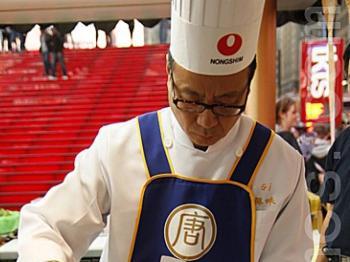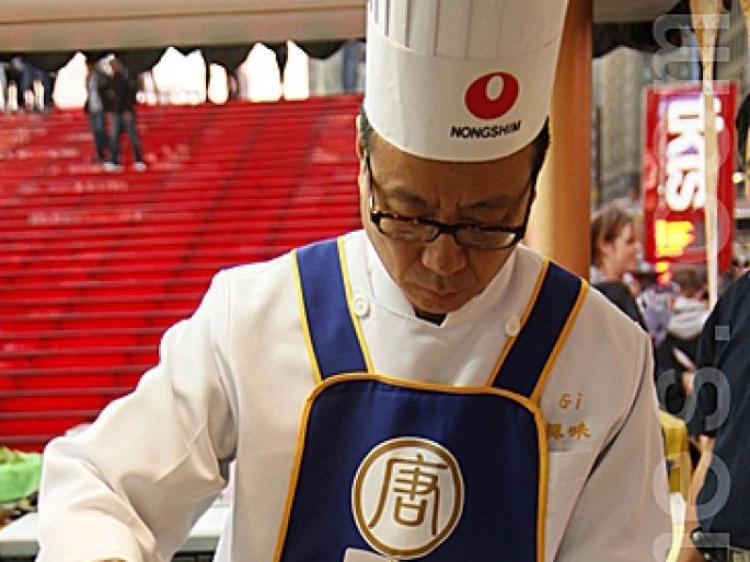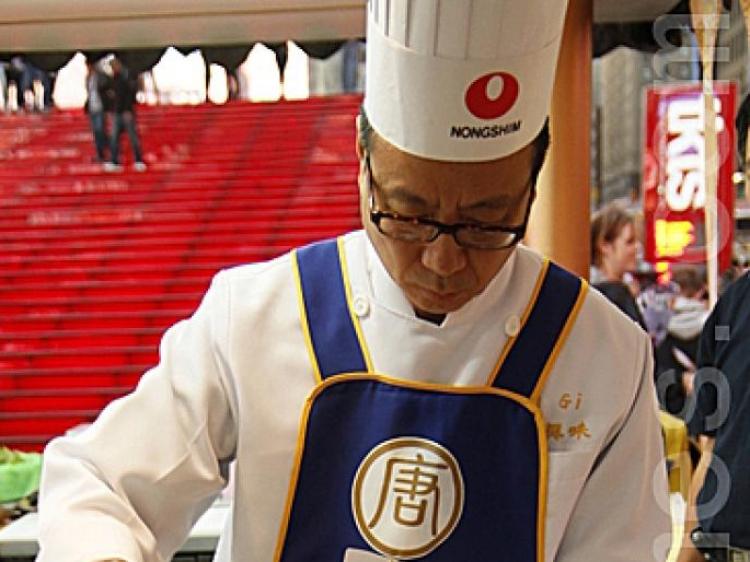Cantonese Master Chef from Hong Kong: I Feel Like a Hero
Chef Man-Fai Lee has been cooking Cantonese cuisine for about thirty-years in Hong Kong.

Man-Fai Lee preparing his entry to NTDTV's International Chinese Culinary Competition. Wen Zhong/The Epoch Times
|Updated:



